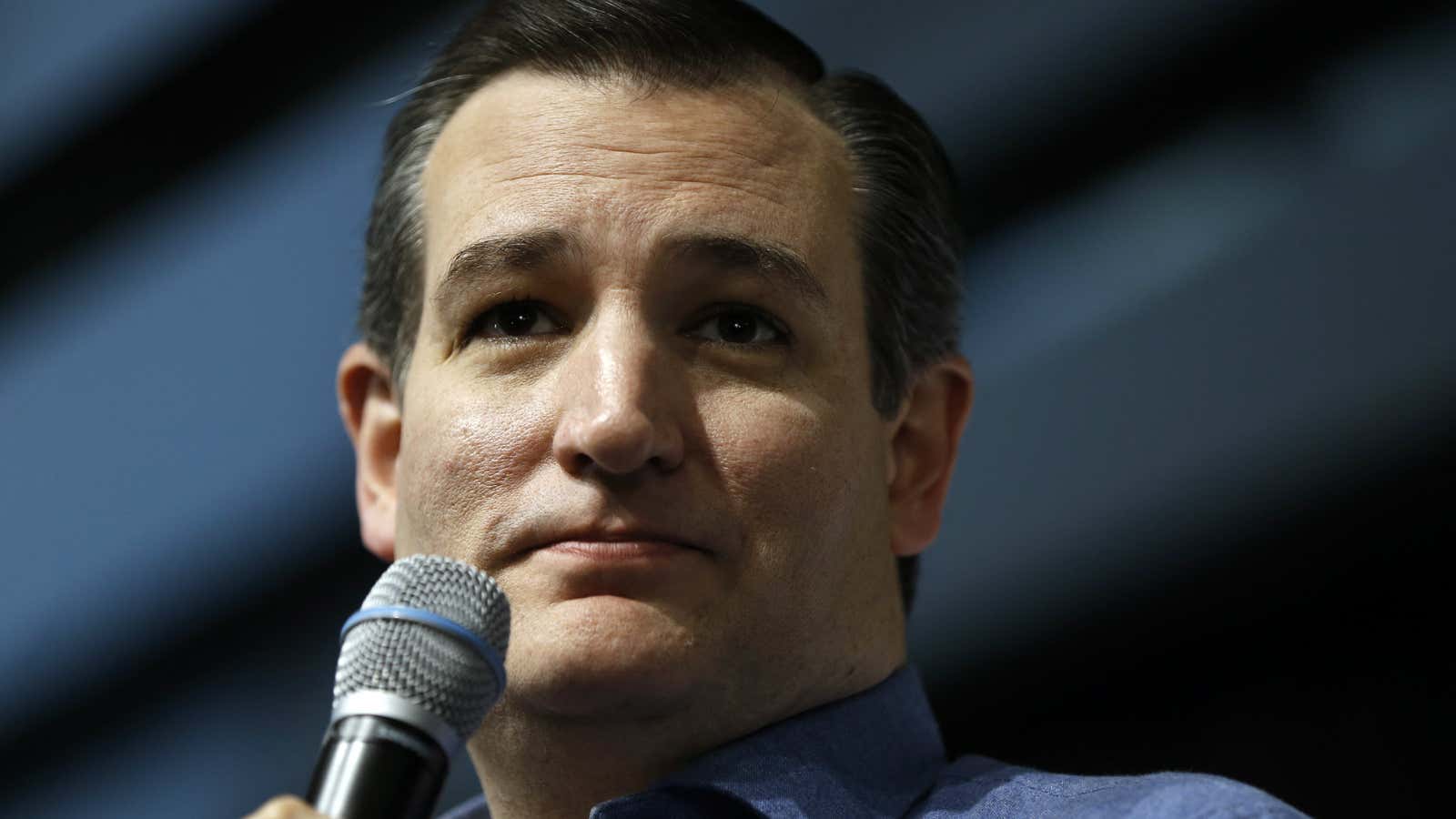This post has been corrected.
Only minutes after the confirmation of the death of conservative Supreme Court justice Antonin Scalia, leading Republicans vowed to block the nomination of his successor by president Barack Obama, who has nearly a year left in office.
“The American people should have a voice in the selection of the next Supreme Court justice,” said Senate Majority Leader Mitch McConnell in a statement. “Therefore, this vacancy should not be filled until we have a new president.”
Conn Carroll, a top aide to Republican Sen. Mike Lee of Utah, who sits on the judiciary committee that will vet any Supreme Court nominees, said:
A constitutional crisis in the making?
Blocking a Supreme Court nomination for the better part of a year would be unprecedented in US history.
That holds true even in presidential election years, when 11 justices have been confirmed.
Senate Minority Leader Harry Reid, the body’s top Democrat, quickly blasted Republicans for their statements on Scalia’s replacement:
Democratic California governor Jerry Brown followed suit:
How it works
Supreme Court justices are nominated by the president, and then confirmed by a simple majority of the 100-member US Senate—though Senate rules do make it easy to obstruct proceedings by filibustering—a parliamentary procedure that requires 60 votes to overturn. Republicans hold a 54-vote majority in the Senate
And what happens if the Supreme Court is left with an empty seat for nearly a year? The eight remaining justices could still hear cases as long as there is a quorum of six, though major cases have traditionally been delayed until a departed justice is replaced.
The Supreme Court is due to hear its first major abortion case in almost a decade, and landmark cases on immigration, climate change, voting rights, and affirmative action are also on the docket.
An earlier version of this post referred to Harry Reid as Senate Majority Leader, rather than Senate Minority Leader.
